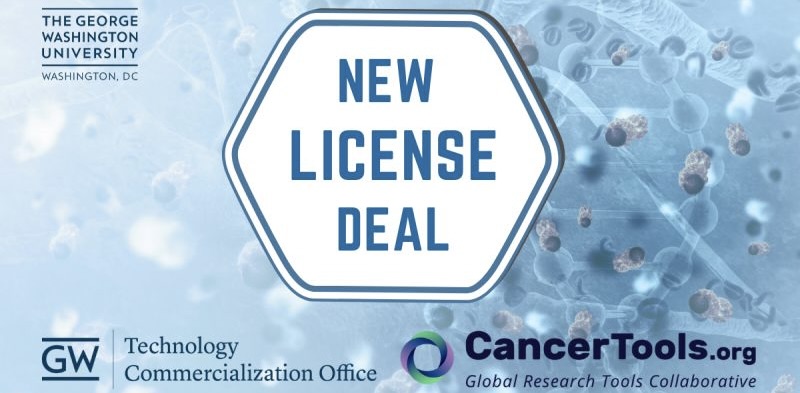We, at the GW Technology Commercialization Office (TCO), are delighted to announce a significant licensing agreement with CancerTools.org, a non-profit, cancer-focused, research tools biorepository focused on accelerating cancer research discoveries globally. The partnership with CancerTools.org underscores our commitment to advancing cancer research by leveraging their expertise in the secure deposit, storage, maintenance, and worldwide distribution of vital research tools like antibodies, cell lines, mouse models, and more.
Streamlining Cancer Research with a Master Licensing Agreement
This Master Licensing Agreement laid the groundwork for the relationship between GW and CancerTools.org, and enables licensing of additional cancer research materials by simple amendments.
Through this agreement, GW researchers can more easily deposit their research tools into the CancerTools.org biorepository. This facilitates the sharing of their valuable tool with the global scientific community. The Master Licensing Agreement eliminates the administrative burden on inventors and GW of individual contracts with each material recipient, expediting the transfer process and fostering a more collaborative research environment.
Although being a cancer-focused biorepository, CancerTools.Org offers depositing tools in research areas outside cancer such as Immunology, Metabolism, Stem Cell Biology and many more, extending the benefits of this agreement to non-cancer researchers in health sciences.
How to Get Involved
We encourage all cancer researchers at GW to take advantage of this unique opportunity to share their materials with a worldwide audience.
To learn more about licensing your cancer research materials through this agreement, please contact the TCO at tco![]() gwu [dot] edu (tco[at]gwu[dot]edu).
gwu [dot] edu (tco[at]gwu[dot]edu).
Initial Deposit by Rong Li
This partnership commenced with licensing of a transgenic Nelfb mouse, developed by the distinguished Dr. Rong Li. The mouse was used in research recently published in Nature Communications, describing how T cell factor 1 (TCF1) works in tandem with other transcription factors such as negative elongation factor (NELF) to bolster antitumor immunity in CD8+ T cells.


